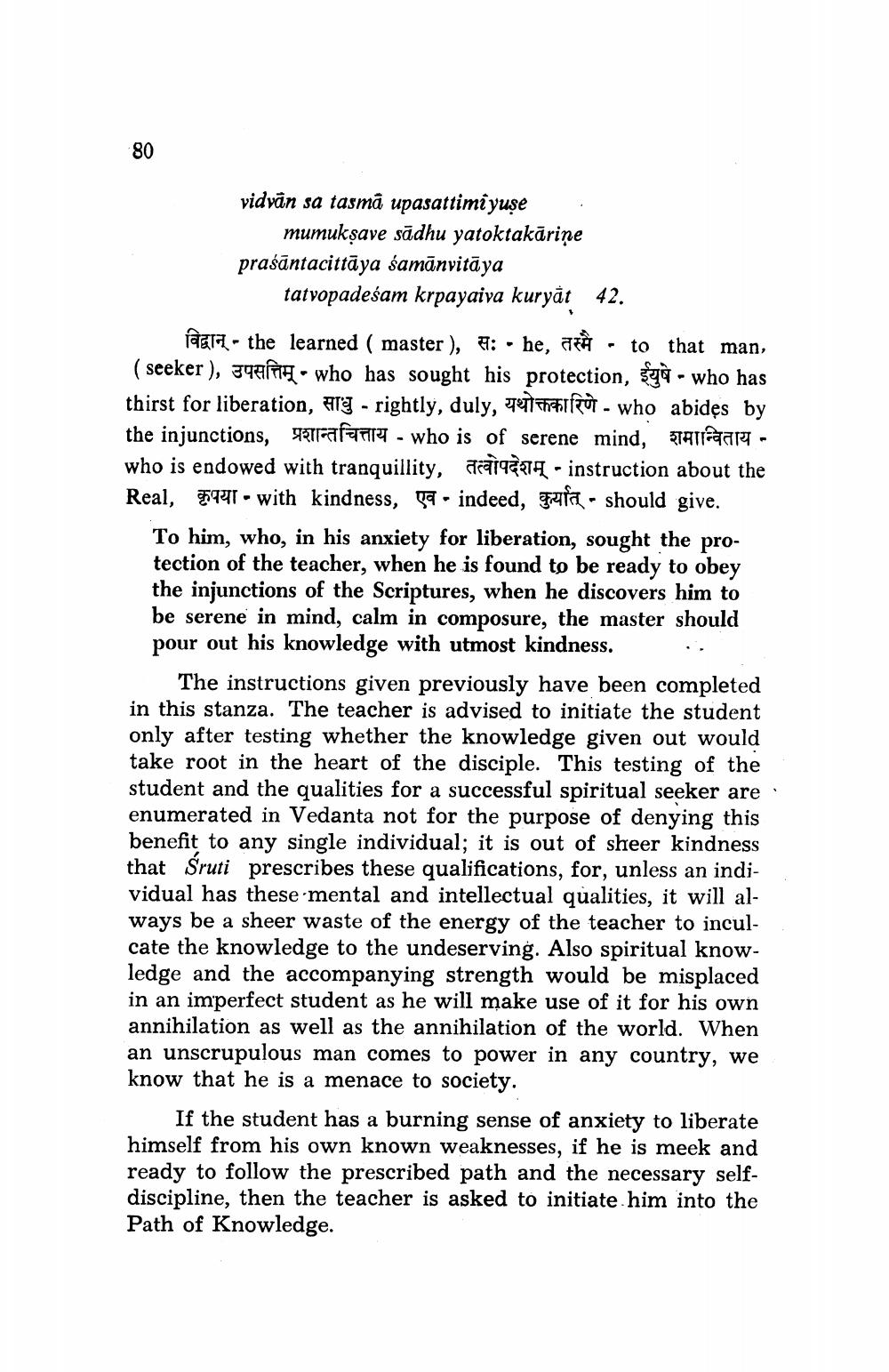________________
vidyān sa tasma upasattimiyușe
mumuksave sādhu yatoktakāriņe praśāntacittāya samānvitāya
tatvopadeśam krpayaiva kuryat 42. E17 - the learned ( master ), #: - he, at - to that man, ( seeker), 398TH who has sought his protection, sya - who has thirst for liberation, arg - rightly, duly, 72777PTITUT - who abides by the injunctions, Falzare - who is of serene mind, Talang - who is endowed with tranquillity, Aca19aT4 - instruction about the Real, F4 - with kindness, 59. indeed, grafa - should give.
To him, who, in his anxiety for liberation, sought the protection of the teacher, when he is found to be ready to obey the injunctions of the Scriptures, when he discovers him to be serene in mind, calm in composure, the master should pour out his knowledge with utmost kindness.
The instructions given previously have been completed in this stanza. The teacher is advised to initiate the student only after testing whether the knowledge given out would take root in the heart of the disciple. This testing of the student and the qualities for a successful spiritual seeker are enumerated in Vedanta not for the purpose of denying this benefit to any single individual; it is out of sheer kindness that Śruti prescribes these qualifications, for, unless an individual has these mental and intellectual qualities, it will always be a sheer waste of the energy of the teacher to inculcate the knowledge to the undeserving. Also spiritual knowledge and the accompanying strength would be misplaced in an imperfect student as he will make use of it for his own annihilation as well as the annihilation of the world. When an unscrupulous man comes to power in any country, we know that he is a menace to society.
If the student has a burning sense of anxiety to liberate himself from his own known weaknesses, if he is meek and ready to follow the prescribed path and the necessary selfdiscipline, then the teacher is asked to initiate him into the Path of Knowledge.




